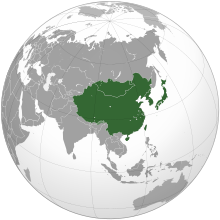Portal:Business
The Business and Economics Portal Business is the practice of making one's living or making money by producing or buying and selling products (such as goods and services). It is also "any activity or enterprise entered into for profit." A business entity is not necessarily separate from the owner and the creditors can hold the owner liable for debts the business has acquired. The taxation system for businesses is different from that of the corporates. A business structure does not allow for corporate tax rates. The proprietor is personally taxed on all income from the business. A distinction is made in law and public offices between the term business and a company such as a corporation or cooperative. Colloquially, the terms are used interchangeably. (Full article...) Economics (/ˌɛkəˈnɒmɪks, ˌiːkə-/) is a social science that studies the production, distribution, and consumption of goods and services. Economics focuses on the behaviour and interactions of economic agents and how economies work. Microeconomics analyses what's viewed as basic elements in the economy, including individual agents and markets, their interactions, and the outcomes of interactions. Individual agents may include, for example, households, firms, buyers, and sellers. Macroeconomics analyses the economy as a system where production, distribution, consumption, savings, and investment expenditure interact, and factors affecting it: factors of production, such as labour, capital, land, and enterprise, inflation, economic growth, and public policies that have impact on these elements. (Full article...) Selected articleThe Second Malaysia Plan was an economic development plan set out by the government of Malaysia, with the goal of implementing the aims of the New Economic Policy. It aimed to "restructure" Malaysian society and overturn Chinese Malaysian and foreign hegemony in the economy of Malaysia so that the Malays would not be disadvantaged economically. Although the First Malaysia Plan had also set out to tackle the problem of poverty, especially among the Malays, it had not been very successful, and may have been a factor in the May 13 Incident when racial rioting broke out in Kuala Lumpur. The Second Malaysia Plan was regarded by some as excessive in its zeal to increase Malay participation in the economy, and the government accordingly scaled back the emphasis on restructuring the economy when the plan ended. Selected image
Selected economy The economy of East Asia comprises 1.6 billion people (20% of the world population) living in six different countries and regions. The region includes several of the world's largest and most prosperous economies: Taiwan, Japan, South Korea, China, Hong Kong, and Macau. It is home to some of the most economically dynamic places in the world, being the site of some of the world's most extended modern economic booms, including the Taiwan miracle (1950–present) in Taiwan, Miracle on the Han River (1974–present) in South Korea, Japanese economic miracle (1950–1990) and the Chinese economic miracle (1983–2010) in China. East Asia's economic prominence has grown significantly in recent years, increasing its importance and influence in Asia and the world economy. Recent developments have led to an expanding cosmopolitan middle class. East Asian countries are vital contributors to central global communications and trade networks, developing relations with other nations, including those of the Western world, making them a significant contributor to the global economy. The region's economic success was referred to as "An East Asian Renaissance" by the World Bank in 2007. (Full article...) Selected quote"Instead, this 'loss out of nowhere' is hidden in the detail that economists lose by treating infinitesimally small quantities as zeros. If perfectly competitive firms were to produce where marginal cost equals price, then they would be producing part of their output past the point at which marginal revenue equals marginal cost. They would therefore make a loss on these additional units of output. As I argued above, the demand curve for a single firm cannot be horizontal-it must slope downwards, because if it doesn't, then the market demand curve has to be horizontal. Therefore, marginal revenue will be less than price for the individual firm. However, by arguing that an infinitesimal segment of the market demand is effectively horizontal, economists have treated this loss as zero. Summing zero losses over all firms means zero losses in the aggregate. But this is not consistent with their vision of the output and price levels of the perfectly competitive industry. The higher level of output must mean losses are incurred by the industry, relative to the profit-maximizing level chosen by monopoly. Losses at the market level must mean losses at the individual firm level- yet these are presumed to be zero by economic analysis, because it erroneously assumes that the perfectly competitive firm faces a horizontal demand curve."
TopicsRelated WikiProjectsDid you know (auto-generated) -
On this day in business history
General imagesThe following are images from various business-related articles on Wikipedia.
More did you know
Business news Wikinews Economy and business portal
|






































